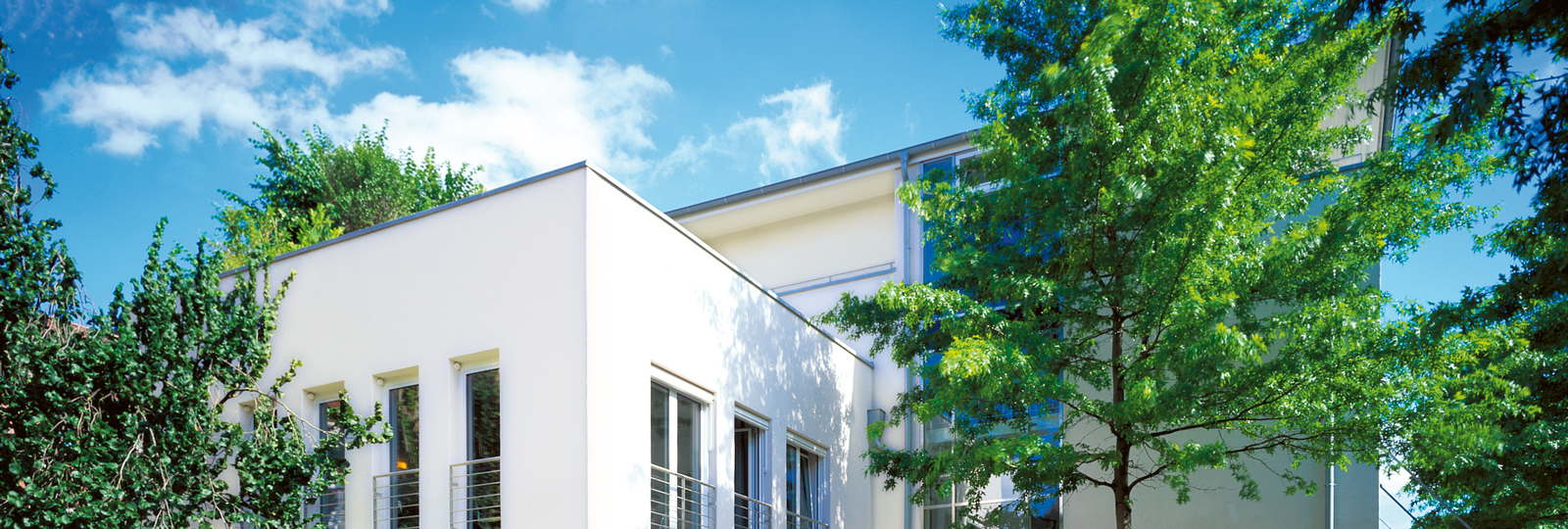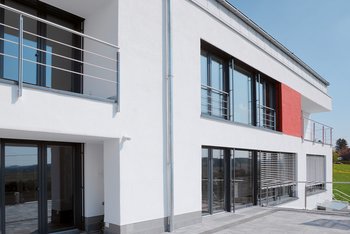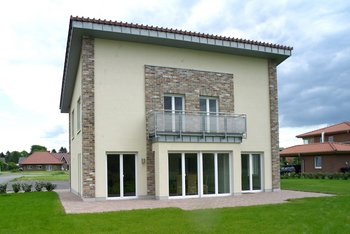Energy and environment Energy Saving Ordinance (EnEV) and energy certificate
Thermal insulation is more important than ever today: In Germany today, almost 50 percent of the total energy consumption occurs in residential buildings. The goal is to reduce this with the Energy Saving Ordinance (EnEV). For new buildings or when renovating external components, the Energy Saving Ordinance (EnEv) therefore requires a thermal insulation certificate to enable the energy performance of the building to be assessed. To determine the primary energy requirements, the entire building is viewed as a unit with its system technology – the result is then documented in an energy certificate. On existing buildings built before 1965, energy certificates have been providing more transparency into energy consumption since 1 July 2008. Since the beginning of 2009, it has also been mandatory when renting and selling all other residential buildings. For commercial buildings and other buildings that are not predominantly used for residential purposes, known as non-residential buildings, it has been compulsory since July 2009.
Low-energy houses
Efficient insulation with Brillux ETICS Systems
In accordance with the plans of the Federal Government, the heat requirement in existing buildings in Germany is to be significantly reduced. A joint energy concept of the Federal Ministry of Economics and Technology (BMWi) and the Federal Ministry for the Environment, Nature Conservation and Nuclear Safety (BMU) envisages that the heat requirement should be nearly climate-neutral by 2050. Energy-efficient construction methods with highly insulated and thermal-bridge-free building shell play a central and important role in this context.
Requirement for passive houses
A passive house is often referred to as a "1.5 liter house": The maximum heat requirement of 15 kWh/m2a in accordance with the passive house planning package (PHPP), based on the living area, corresponds to around 1.5 liters of heating oil or 1.5 m3 natural gas per m2. The maximum primary energy requirement for heating, hot water and electricity is limited to 120 kWh/m2a. To be entitled to a subsidy for a "KfW energy-efficient house 55", the primary energy consumption in accordance with EnEV 2009 must not exceed 40 kWh/m2a. Calculations according to PHPP can provide different results than the Energy Saving Ordinance (EnEV) calculation method.
Certified solutions
The Brillux ETIC Systems Qju, I and IV provide sophisticated solutions that allow correct planning and reliable application in passive houses. This is also confirmed by the Passive House Institute in Darmstadt with its certification for the Brillux Passive House details.
Protecting the environment
An important goal for us all
The energy certificate aims to help protect the environment and the earth's climate. The background: As early as 1992, the United Nations defined a binding goal in law as part of the Climate Change Convention: To prevent a dangerous, man-made impact on the Earth's climate system. To achieve this, the release of greenhouse gases such as CO2 must be drastically reduced. In 1997, the first legally-binding commitments were made in the Kyoto Protocol. Many industrialized countries have committed themselves to reducing their emissions of the greenhouse gases specified in the protocol by 5.2 percent. The climate change agreement signed in Paris in November 2015 legally requires all countries to curtail the worldwide emission levels. Germany is taking a leading role in the field of environmental protection. With targeted insulation, a single family home can save 1500 liters of heating oil or 1500 m3 natural gas per year. This corresponds to a CO2-saving of around 3.9 or 3.0 tons per year – in 30 years, that amounts to approximately 117 and 90 tons.




